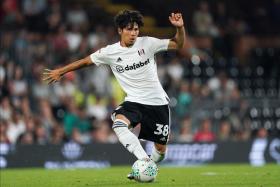Mourinho clings to the past rather than the future: Richard Buxton
Blaming his players is a reaction that happens at every club he has managed
Jose Mourinho's refusal to finally accept his fate will again prove his great undoing.
Regardless of the numerous chastening experiences he suffers in the English Premier League, the Portuguese clings to the past rather than aligning to its evolving future.
Tottenham Hotspur's 2-1 defeat by Arsenal in yesterday morning's (Singapore time) North London Derby drew a tiresome and entirely predictable response from Mourinho.
Once more, the Special One chose to point the finger at his players.
Blaming the Lilywhites' dressing room for a dereliction of duty no longer registers as a surprise because it happens at every elite-level club that Mourinho has coached.
Just ask those left in his trail of destruction at Real Madrid, Manchester United and Chelsea.
Yet the 58-year-old cannot abdicate responsibility after sending out a side to face the Gunners with a game which is already heavily outdated.
Opponents have increasingly become wise to his teams sitting deep and protecting a one-goal lead at all costs.
So, too, are they immune to the gamesmanship which Mourinho instils and often encourages in his players, typified by Erik Lamela's devilment which saw him sent off.
Embracing their manager's desire for confrontation does not come as naturally as it does the Argentina international. His mission statement after succeeding Mauricio Pochettino demanded Spurs shifted from the angelic "nice group of guys" he inherited.
Mourinho's fixation with trying to recapture a paradise lost sends him further down a path where his accomplishments are now diminished by this ongoing fall from grace.
In the EPL era, only Sir Alex Ferguson has won more titles than Mourinho while the closest challenger to his triple haul is one of two nemeses - Manchester City's Pep Guardiola looks set to join Arsene Wenger in keeping Mourinho company.
Still, he continues to fight an unwinnable war to enhance what little credibility remains; pounding the managerial treadmill at every opportunity, no matter how damaging it is.
Personal statistics are becoming collateral damage as much as the reputations of the clubs he drags down.
Their defeat by Arsenal was the ninth loss Mourinho has suffered in a single season, matching an inglorious second spell at Chelsea in the first half of 2015/16.
The infamous third-season syndrome, which led to the downfall of his Stamford Bridge return, draws ever nearer with each job that he has subsequently taken.
Accelerating it to the end of a first full campaign at Spurs is a surefire sign he is again on the ropes.
He could have saved the embarrassment of it all by accepting the gift of foresight.
Before taking the reins in north London, Mourinho never appeared more comfortable than when casting an eye over the English top flight in a rare stint as a television pundit.
A second lease of life in the studio clearly resonated and beckoned, judging by the charisma he exuded when appearing on-screen.
Carving out a footballing afterlife in the studio is tailor-made because, in his eyes, only the analysts can truly "win every game".
Chasing the irreplicable buzz of his managerial heyday, however, has mired Mourinho in a mid-2000s a mindset, where pragmatism and a succession of big jobs are too strong to resist.
For their own sake as much as his, Tottenham Hotspur need to belatedly put him out of his misery.
Get The New Paper on your phone with the free TNP app. Download from the Apple App Store or Google Play Store now



